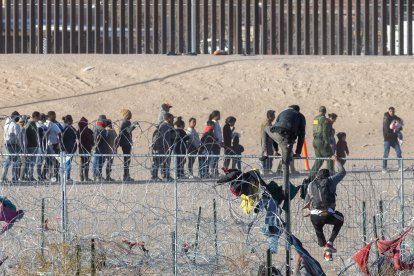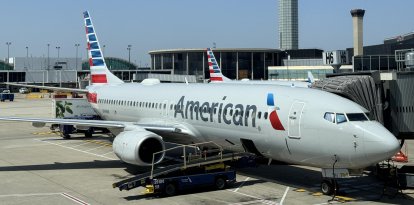Biden suspends humanitarian parole, a program that allowed migrants from four countries to enter the United States
The decision was made after multiple cases of immigration application fraud were revealed.

Immigrants at the southwest border.
The Biden Administration suspended a program that allowed tens of thousands of migrants from Cuba, Haiti, Nicaragua and Venezuela to travel directly to the United States. This decision followed an internal report that revealed a large number of cases of fraud in the program.
The Department of Homeland Security (DHS) reported to Fox News that, as of early July, the issuance of advance travel permits for the Humanitarian Conditional Release Program for Citizens of Cuba, Haiti, Nicaragua and Venezuela (CHNV), also known as humanitarian parole. This program allowed up to 30,000 citizens from these four countries to enter the United States legally each month, under requirements such as: not having entered the country illegally, having a sponsor in the United States, and passing certain biometric and biographic checks.
Fraud problems in the program
A report by the Directorate of Fraud Detection and Homeland Security, which prompted the suspension, noted that sponsor applications were plagued by fraud. DHS clarified that the problems centered on sponsor applications, not those of program beneficiaries.
The report, shared by the Federation for American Immigration Reform (FAIR), showed that many application forms included Social Security numbers, addresses and phone numbers used hundreds of times. In all,100,948 forms were completed by 3,218 serial sponsors appearing on at least 20 forms each. It was also discovered that some numbers belonged to deceased individuals and that a hundred physical addresses, including storage units, were used repeatedly on the forms.
"DHS has review mechanisms in place to detect and prevent fraud and abuse in our immigration processes. DHS takes any abuse of its processes very seriously. Where fraud is identified, U.S. Immigration and Customs Enforcement (ICE) will investigate and litigate applicable cases in immigration court and make criminal referrals to the Department of Justice," commented a DHS spokesperson.
DHS assured that the pause is temporary and that it will resume processing requests "as quickly as possible, with appropriate safeguards."
Program Expansion
The program was initially announced for Venezuelans in October 2022, allowing a limited number of them to travel directly to the United States if they met certain requirements. However, in January 2023, the program was expanded to include Haitians, Nicaraguans and Cubans, allowing the entry of tens of thousands of people per month. This program grants them work permits and a two-year authorization to reside in the United States.
RECOMMENDATION





















